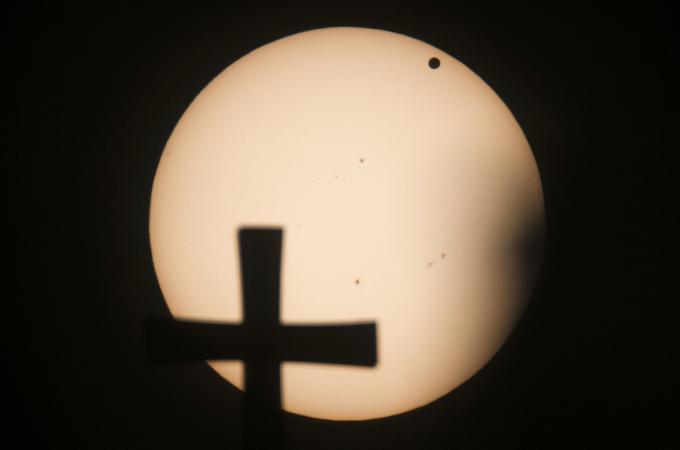Scientifically faithful
I liked science a lot when I was a kid, especially when it focused on the natural world. Because I spent a lot of time outdoors, I learned the names of most birds and bugs, plants, flowers, and trees, and rocks and minerals. I could identify animal tracks in the mud and most of the constellations in the night sky. I also knew which plants I could touch and eat safely when I was wandering in the woods, which I did for hours on end all summer long.
In high school, I took earth science in addition to biology, chemistry, and physics, and spent Saturdays during my junior year in an advanced chemistry program at a local college. I was one of those kids who looked forward to dissecting the frog and the sheep's eye, and was very proud of my ability to measure out chemicals to the gram often on the first try. But I was never serious enough about science to become a scientist. Instead, my studies followed my passion at the time: politics. That interest eventually led me to enroll in numerous philosophy courses, which to my surprise, set me on a path which ended at the Roman Catholic Church.
I used to say that I left Protestantism because I hit my head on the bottom of the pool. For me, the fullness of faith in the Catholic Church was like swimming in the ocean for the first time. It's a whole lot deeper than it looks.
One of the very best things about becoming Catholic was that no one seemed worried about a conflict between the human mind and the human soul. Faith in Christ was not at all threatened by taking the intellect as far as it could go. When reason appeared to lead away from God, it was usually not because it had gone too far, but because it had not gone far enough. In other words, at the end of every logical conclusion is the Logos, the God who created it all. The laws of physics, the genetic code, plate tectonics, and the speed of light are all part of God's plan.
Throughout history, the Catholic Church has been a patroness of the sciences as much as she has been a patroness of the arts. Many of the greatest contributors to numerous scientific discoveries have been men and women of deep faith; not a few have been clergy and religious. In every field from astronomy and physics to biology and chemistry -- even computer science -- many leading scientists have been as comfortable in the pew or sanctuary as they have been in the laboratory or the lecture hall.
That's why it is so strange when people assume that atheism is a prerequisite for scientific method and investigation. It isn't. And, it never will be. God doesn't force us to choose between creator and creation; he asks us to prioritize them properly. The Church doesn't demand that we stop honest inquiry or investigation; she teaches us how to question in ways that do not damage the one who investigates or what is being investigated.
Science and faith don't conflict because they answer questions in completely different spheres. Religion cannot tell us "how." Science cannot tell us "why." What we perceive as conflict usually involves a question of "whether," that is, whether or not we should do what we can do. Those who advocate a completely unbridled quest for knowledge and technological development usually stop in their tracks when it comes to things like weapons of mass destruction.
This Saturday, April 22, is Earth Day. I usually just shake my head at the politicization that seems to be part and parcel of these more recent observances. But this year, I'm glad to see that the first annual worldwide March for Science will be occurring in cities and town across the globe. Wondering if local organizers would welcome people of faith, I contacted them to ask. Their answer was a resounding yes. Some even planned to carry signs that proclaim what the Church has taught for centuries: that there is harmony between faith and science; that it is possible to love God with our minds. True faith is always reasonable. And honest inquiry always leads to the God who made each of us in his image. Can Catholics march for science? Absolutely.
For more information see www.marchforscience.com and www.catholicscientists.org.
- Jaymie Stuart Wolfe is a Catholic convert, wife, and mother of eight. Inspired by the spirituality of St. Francis de Sales, she is an author, speaker, and musician, and serves as a senior editor at Ave Maria Press. Find Jaymie on Facebook or follow her on Twitter @YouFeedThem.



















